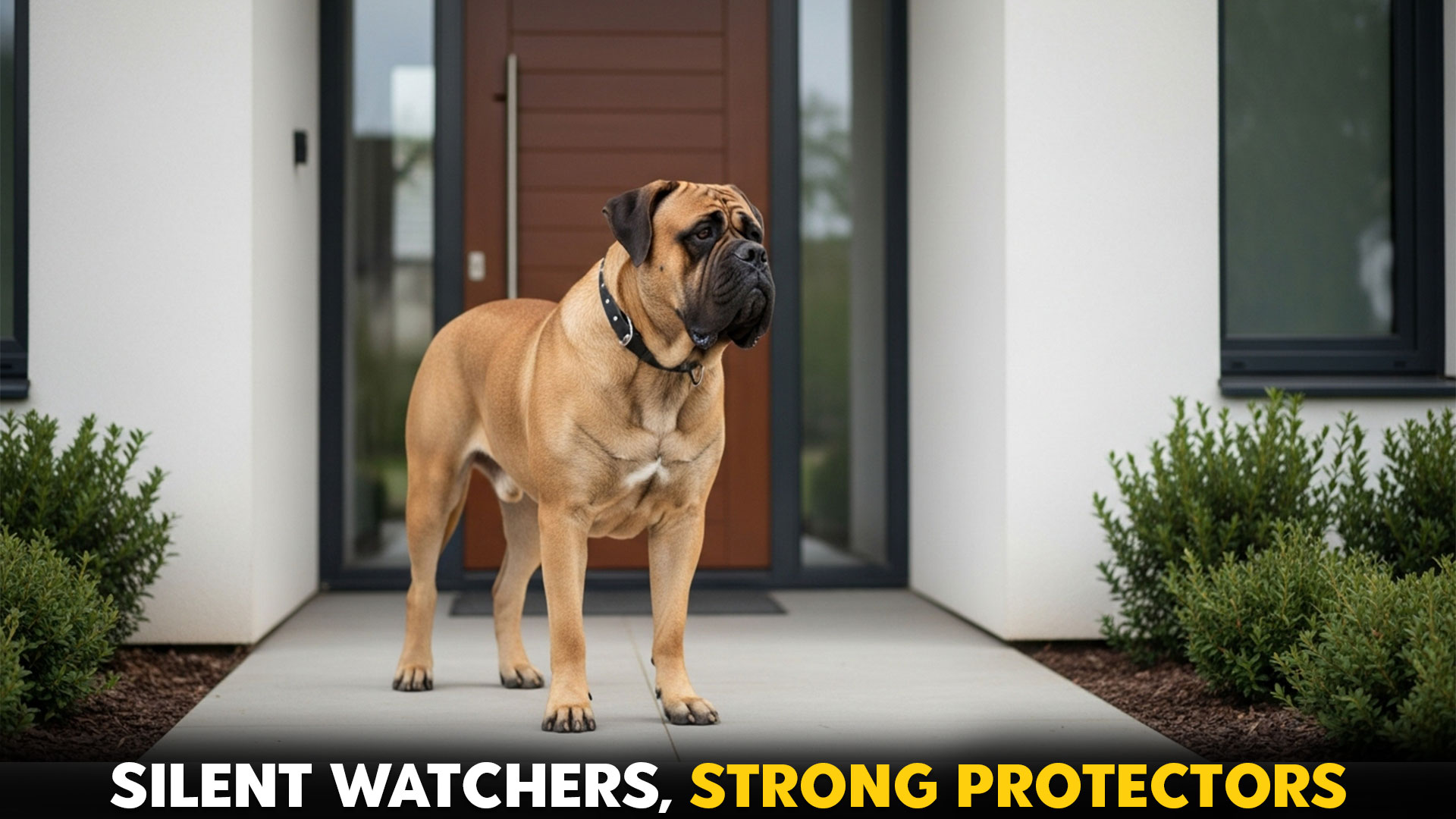When it comes to guard dogs, many people picture nonstop barking—but not all protectors are loud. In fact, a 2024 deep-learning study showed that vocalizations can be categorized by tone, amplitude, and context, revealing that some breeds emit sparse, deliberate alerts rather than constant noise.
Imagine a silent sentinel: alert, imposing, and ready to defend—but quiet until it truly matters. That’s the magic of a guard dog that doesn’t bark too much.
These breeds balance calm demeanor with instinctive protection, preferring presence over pandemonium.
In this post, we’ll spotlight the best and quietest guard dog breeds, those rare dogs that blend power with poise.
Let me show you how silent guardians can offer confidence, security, and peace of mind—without turning your home into a barking zone.
9 Best Guard Dog Breeds That Don’t Bark Too Much
1. Bullmastiff
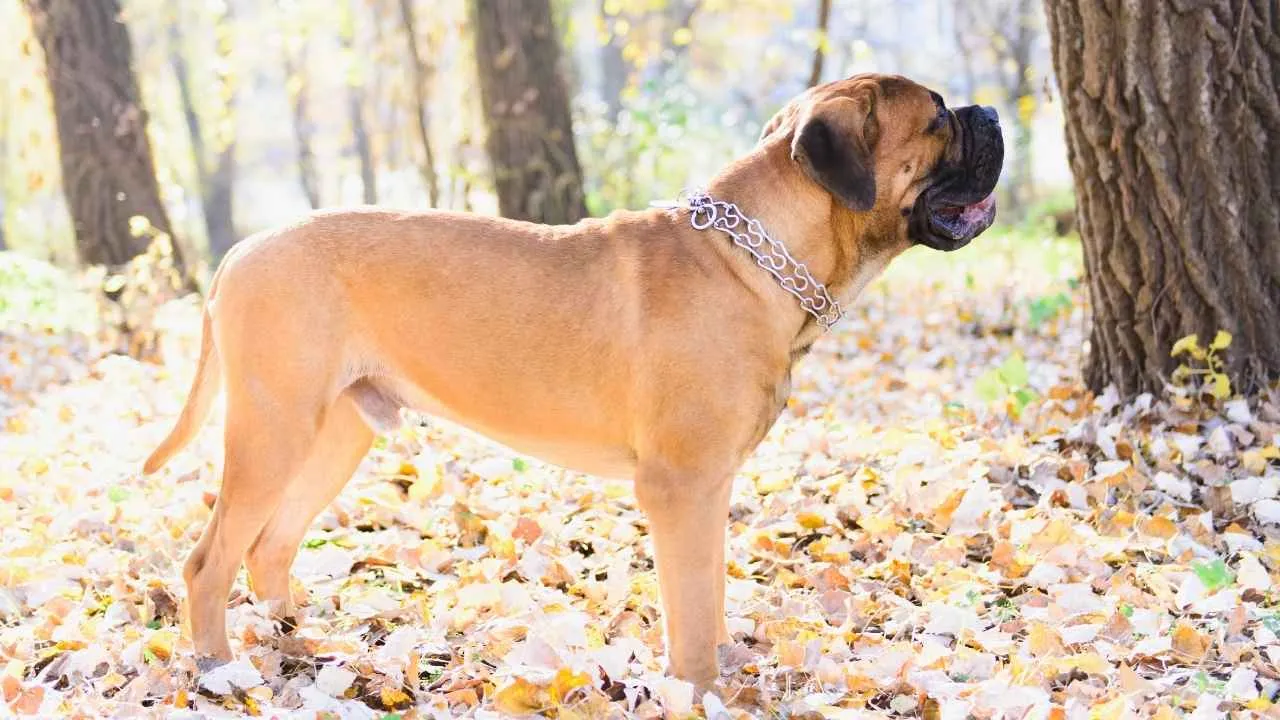
The Bullmastiff is often called the “silent watchdog,” and for good reason. Bred in 19th-century England to guard estates against poachers, this muscular yet calm breed relies more on its sheer presence than constant barking. Their natural confidence makes them one of the best guard dog breeds that don’t bark too much.
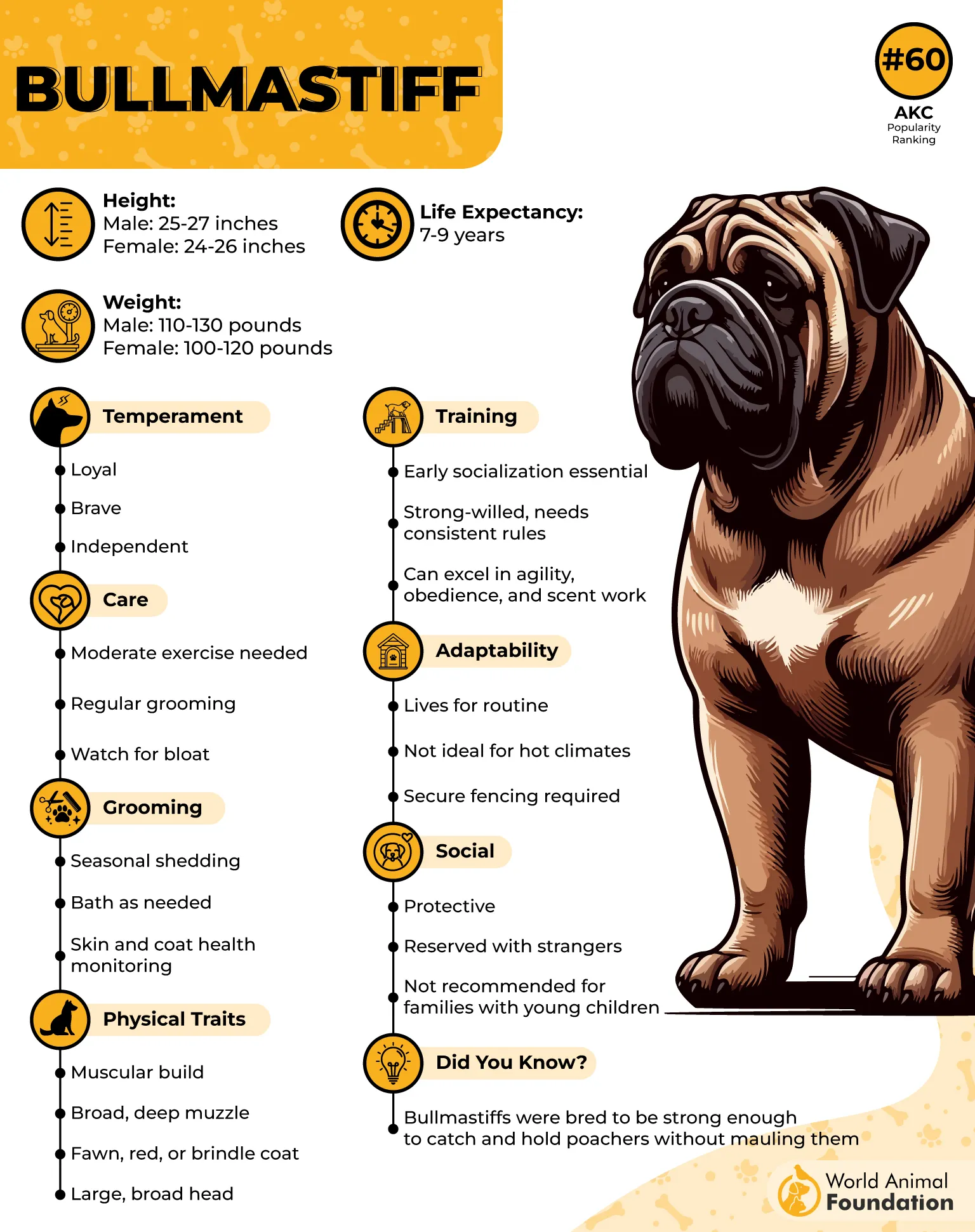
Hills Pet suggests that when well-socialized, Bullmastiffs are affectionate with family but remain instinctively protective. They are intelligent and trainable, though their independent streak means consistent leadership is key. Their quiet nature makes them especially suited for homes seeking both security and peace.
Moreover, they were bred to track and pin intruders rather than raise an alarm; they don’t bark excessively. Instead, they act with deliberate intent—standing between you and any perceived threat. This makes the Bullmastiff a loyal guardian that blends power with serenity.
Owners Insight
Needs daily mental stimulation to avoid stubbornness.
Sensitive to heat; provide cool resting spaces.
Thrives on short, structured walks, not long periods.
2. Akita
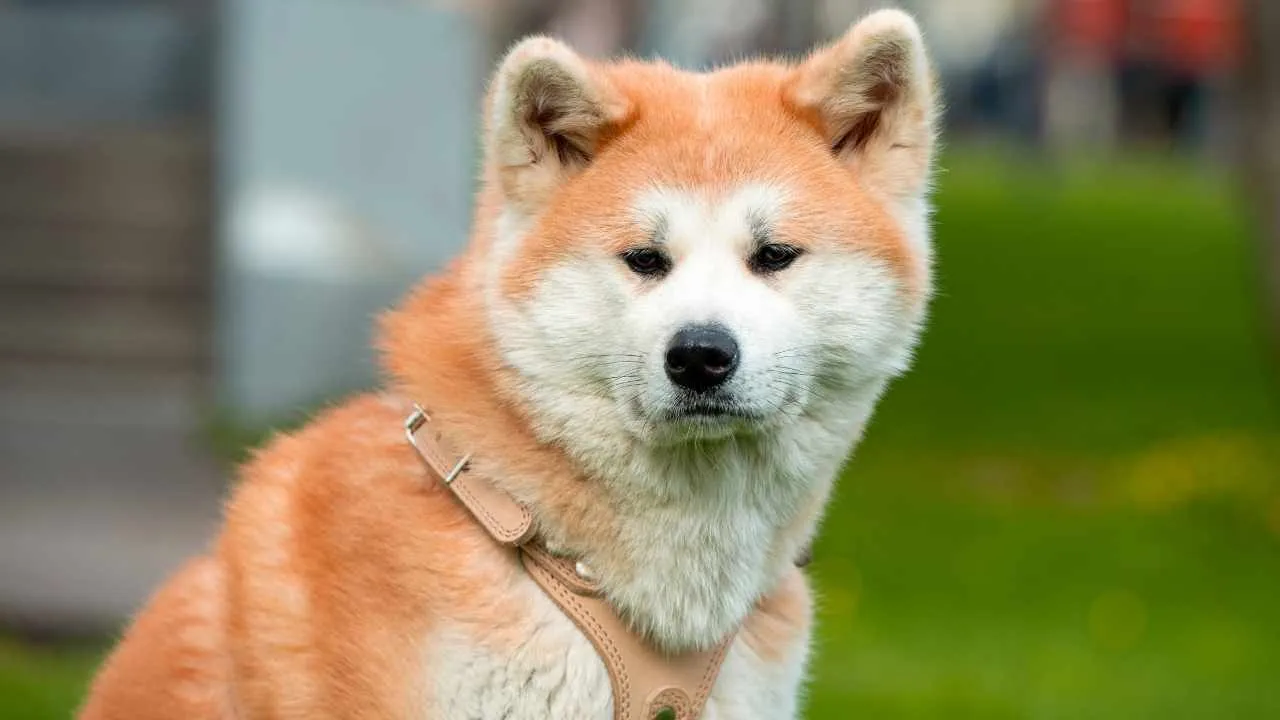
The Akita is a dignified and courageous breed from Japan, originally bred to guard royalty and hunt big game. Their noble bearing matches their quiet disposition, as Akitas bark only when it truly matters. This combination of confidence and calm makes them ideal for families wanting protection without noise.
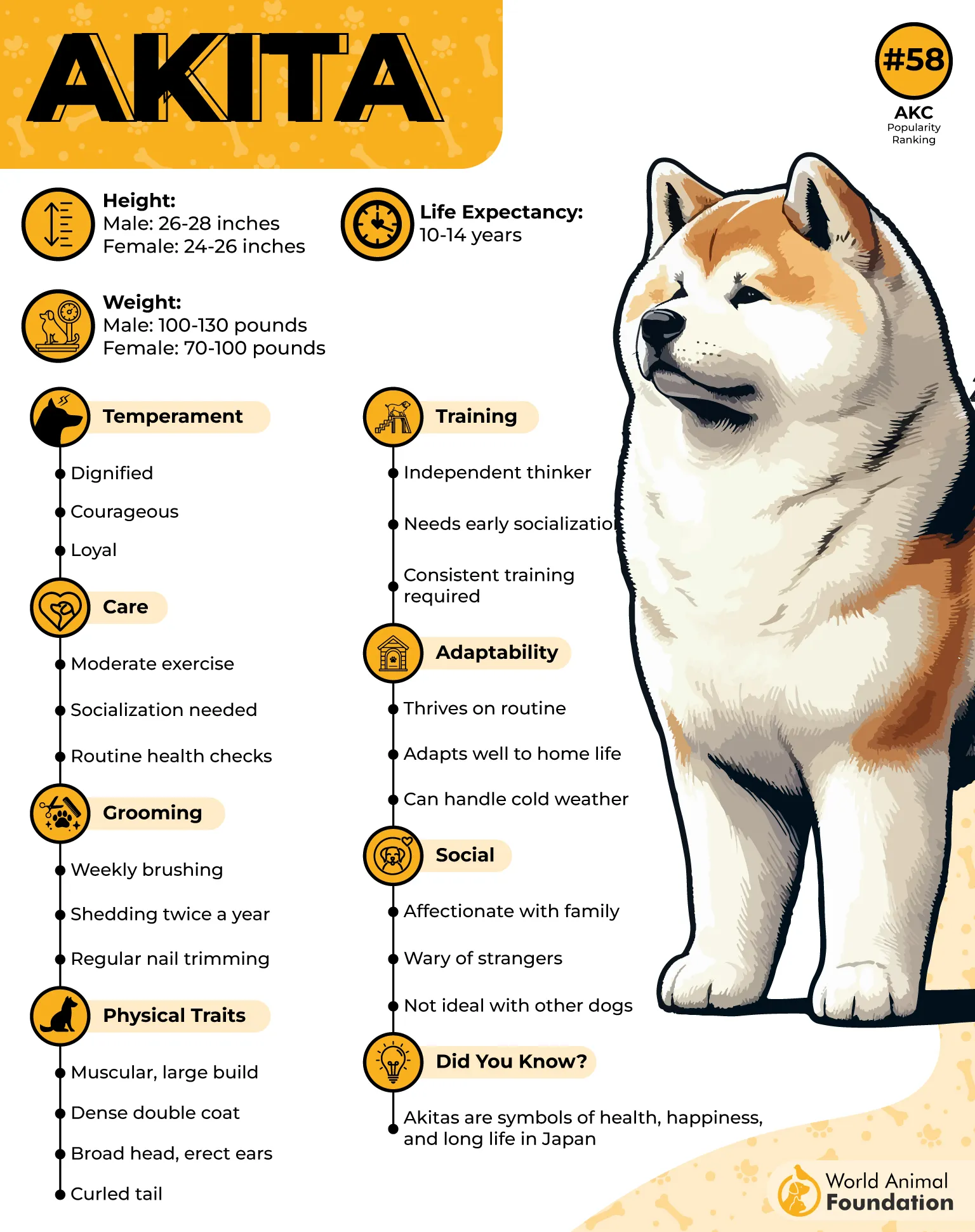
PDSA notes that Akitas are highly intelligent and independent, which can make training a challenge for first-time owners. However, with consistent and respectful guidance, they respond well and develop into loyal, composed guardians. They thrive when early socialization ensures balanced behavior.
Because of their reserved temperament, Akitas don’t waste energy on unnecessary barking. Instead, they observe silently and step forward only when their family’s safety is at stake. This watchful patience has earned them a reputation as one of the best guard dog breeds for quiet protection.
Owners Insight
Prone to same-sex aggression; supervise carefully.
Prefers one-on-one bonding over group settings.
Double coat demands consistent grooming year-round.
3. Rhodesian Ridgeback
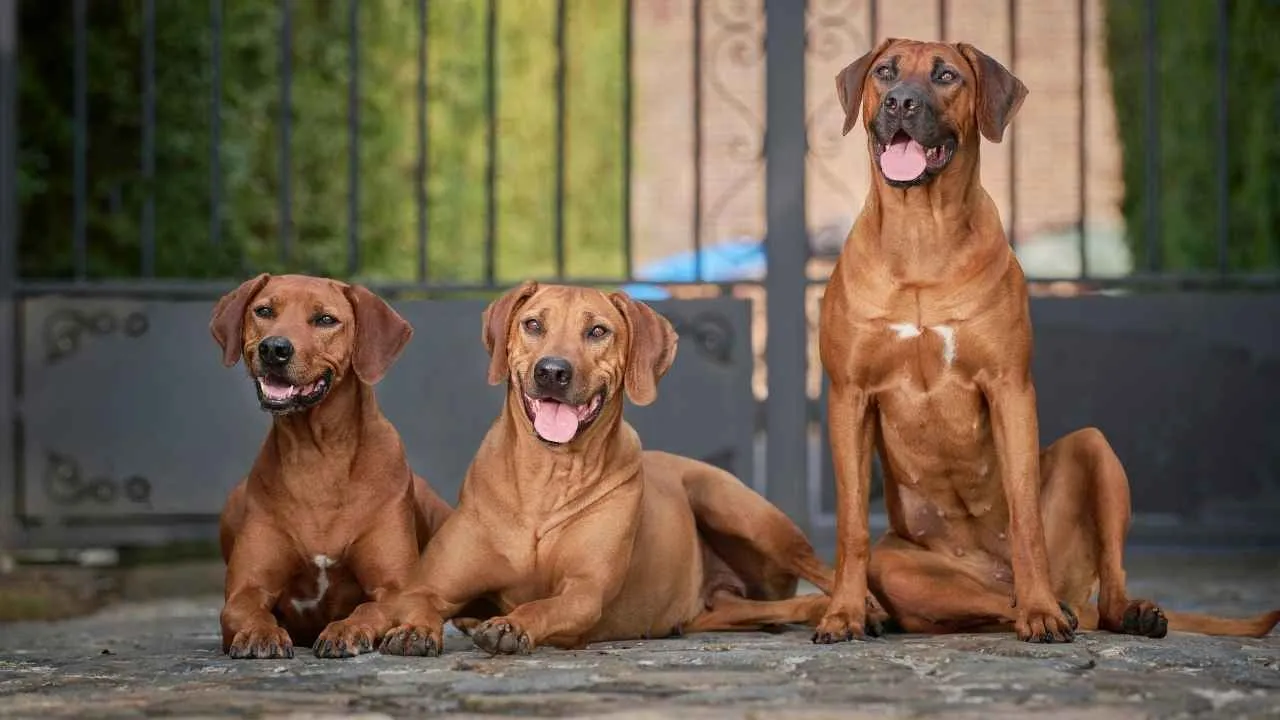
The Rhodesian Ridgeback has roots in southern Africa, where it was bred to track lions and protect homesteads. Known for its signature ridge of hair along the spine, this breed relies more on confidence and physical ability than constant vocalization. Their calm demeanor makes them an excellent low-barking guard dog.
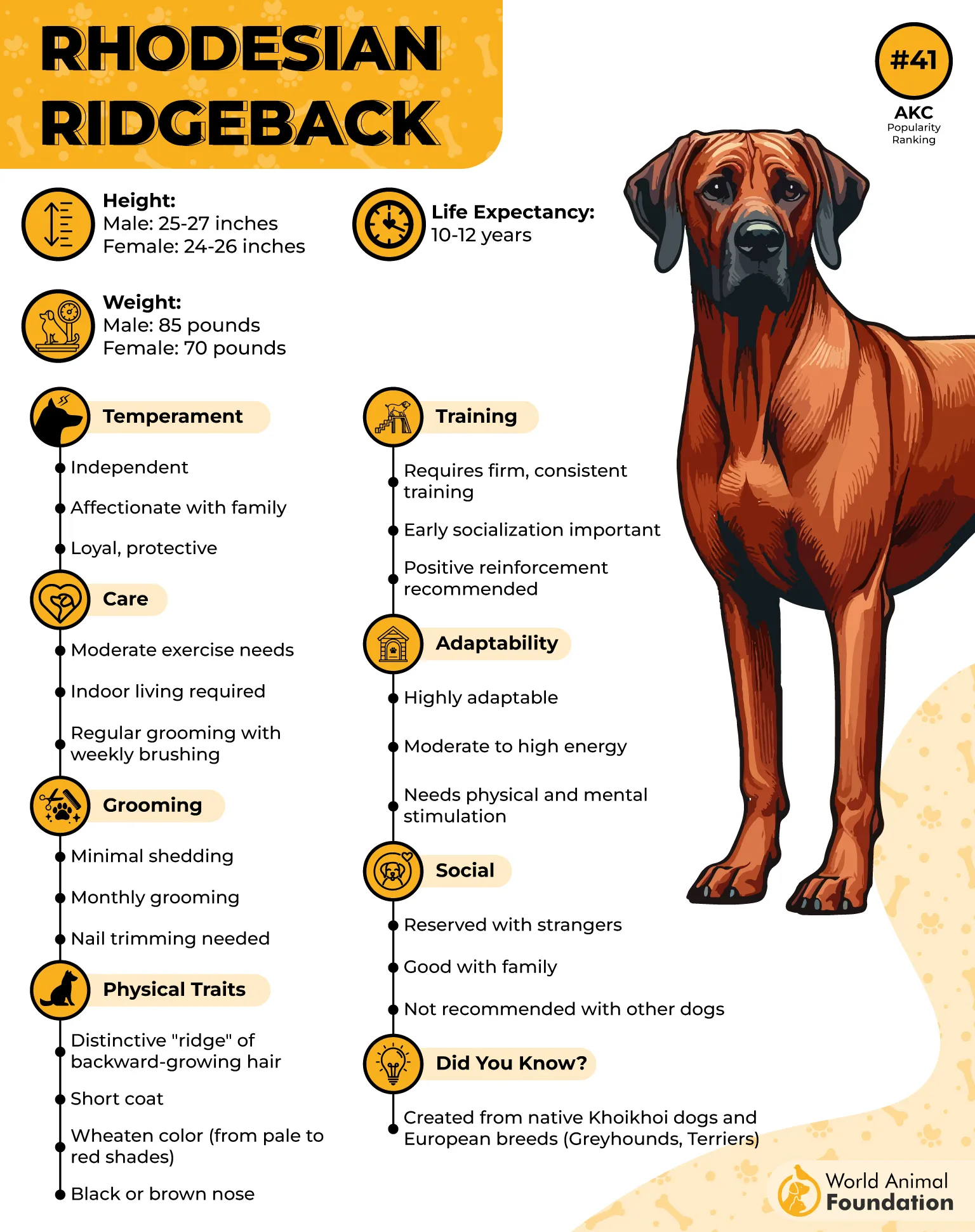
Ridgebacks are intelligent and strong-willed, which means they thrive with consistent, positive training. WebMD claims that early socialization helps them grow into reliable protectors who are affectionate at home and discerning with strangers. They are not known to bark unnecessarily, preferring watchfulness over noise.
What makes them unique is their ability to balance athleticism with composure. Instead of sounding alarms, they use their presence and courage to deter threats. For families seeking a powerful yet quiet protector, the Rhodesian Ridgeback is a compelling choice.
Owners Insight
Excellent jumpers; secure fencing is essential.
Strong prey drive; monitor around smaller animals.
Adaptable to jogging partners with regular exercise.
4. Rottweiler
The Rottweiler is one of the most iconic guard dog breeds, known for its strength and unwavering loyalty. Historically bred to herd livestock and pull carts, these dogs rely on confidence and intelligence rather than excessive barking. Their protective nature is expressed calmly and decisively, not noisily.
AKC states that the Rottweilers are highly trainable, responding well to structured guidance and consistent leadership. When socialized early, they become affectionate family companions while maintaining an instinct to guard. Their calm confidence makes them an excellent choice for quiet protection.
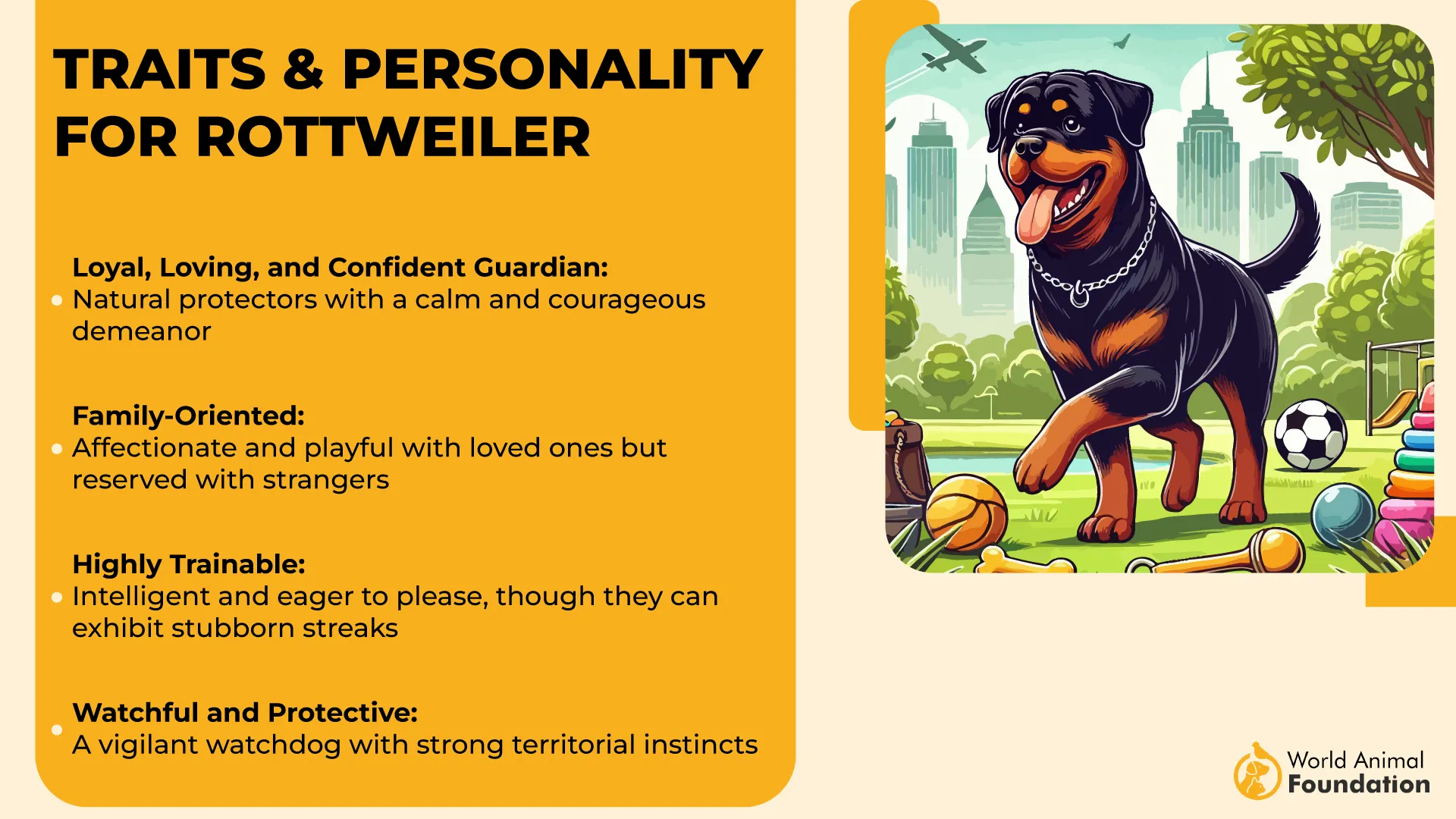
Instead of barking at every passerby, Rottweilers carefully assess situations before acting. This reserved approach makes them ideal for families who value security without constant noise. They are guardians who let their presence, not their bark, do the talking.
Owners Insight
Excels in obedience sports with positive reinforcement.
Requires strong leadership; easily dominates inexperienced owners.
Natural droolers; keep towels handy indoors.
5. Australian Cattle Dog
The Australian Cattle Dog is a spirited and intelligent herding breed originally developed to work long hours in the rugged outback. Known for its problem-solving ability and stamina, this dog is watchful without being excessively vocal. Their alertness and loyalty make them reliable guardians with minimal noise.
Training an Australian Cattle Dog is rewarding for experienced owners, as they thrive with consistent structure and mental stimulation. Socialization from puppyhood helps them channel their natural protectiveness into a balanced family life. With the right guidance, they are both companions and quiet sentinels.
Unlike many herding breeds, they don’t bark at every sound. Instead, they focus their energy on monitoring their surroundings and protecting loved ones. This controlled vigilance makes them one of the best guard dogs for families seeking quiet protection.
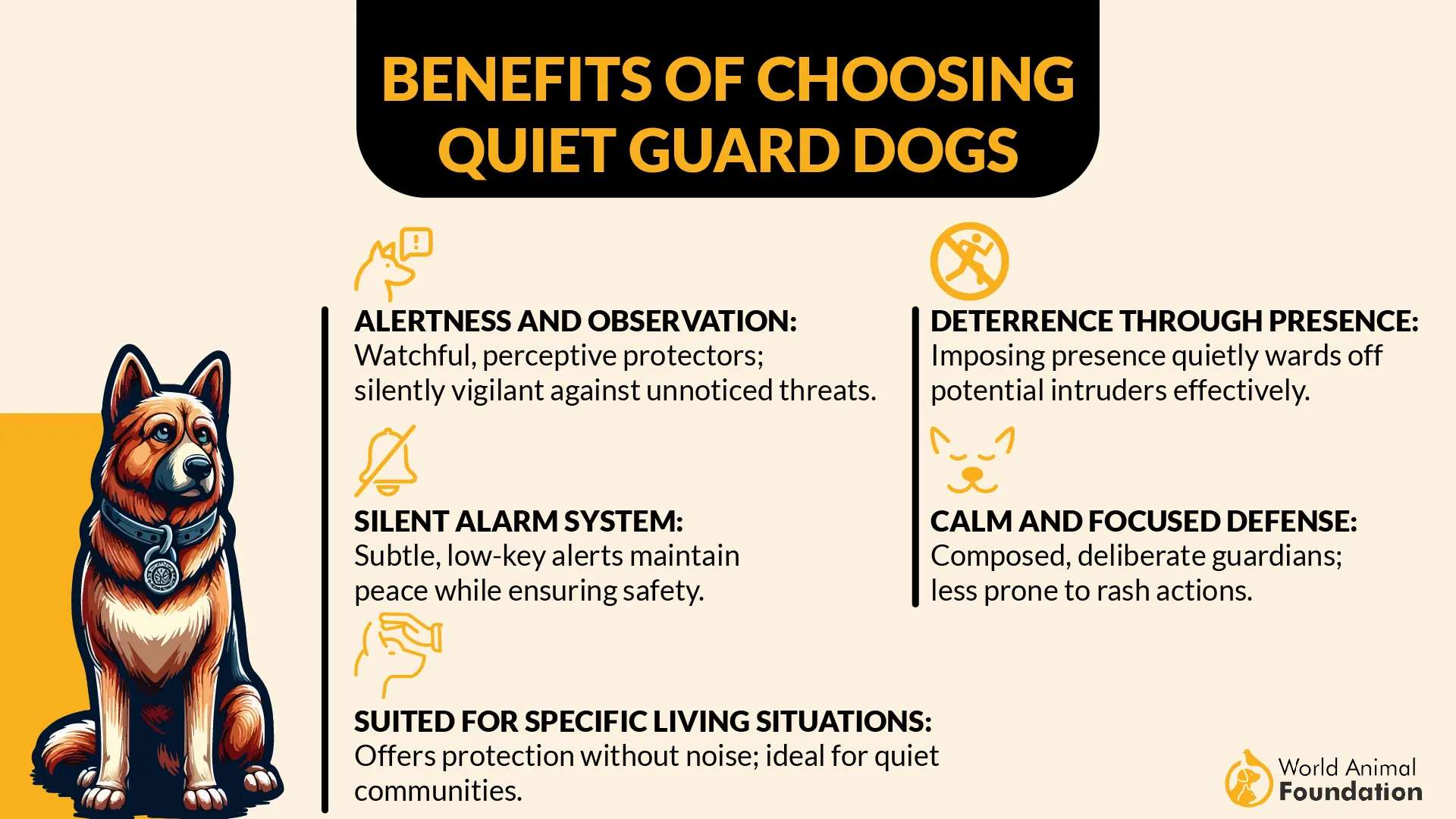
Owners Insight
Extremely prone to boredom without tough toys.
Exceptional agility; enjoys advanced canine sports.
Can nip children while herding instinctively.
6. Saint Bernard
The Saint Bernard may be famous for rescue work in the snowy Alps, but it also makes a dependable guard dog. Despite its massive size, this gentle giant is calm and surprisingly quiet. They reserve their deep, booming bark for true concerns, not everyday noises.
Training and socialization are essential to managing their size and strength. Fortunately, Saint Bernards are eager to please and bond closely with family, making them confident yet kind protectors. Their patient nature means they are less likely to bark out of nervousness or excitement.
Instead of being noisy watchdogs, they use presence and bravery to deter intruders. Their sheer bulk, combined with a quiet demeanor, creates a guardian who protects with both heart and restraint. For families seeking calm security, the Saint Bernard is unmatched.
Owners Insight
Short lifespan; average 8–10 years only.
Sensitive to heat; avoid strenuous summer activity.
Needs large dog spaces to relax comfortably.
7. Chow Chow

The Chow Chow is an ancient Chinese breed known for its lion-like mane and aloof dignity. Unlike many vocal guard dogs, the Chow Chow tends to be reserved and quiet, barking only when a true threat is present. This natural restraint makes them one of the best guard dog breeds that don’t bark too much.
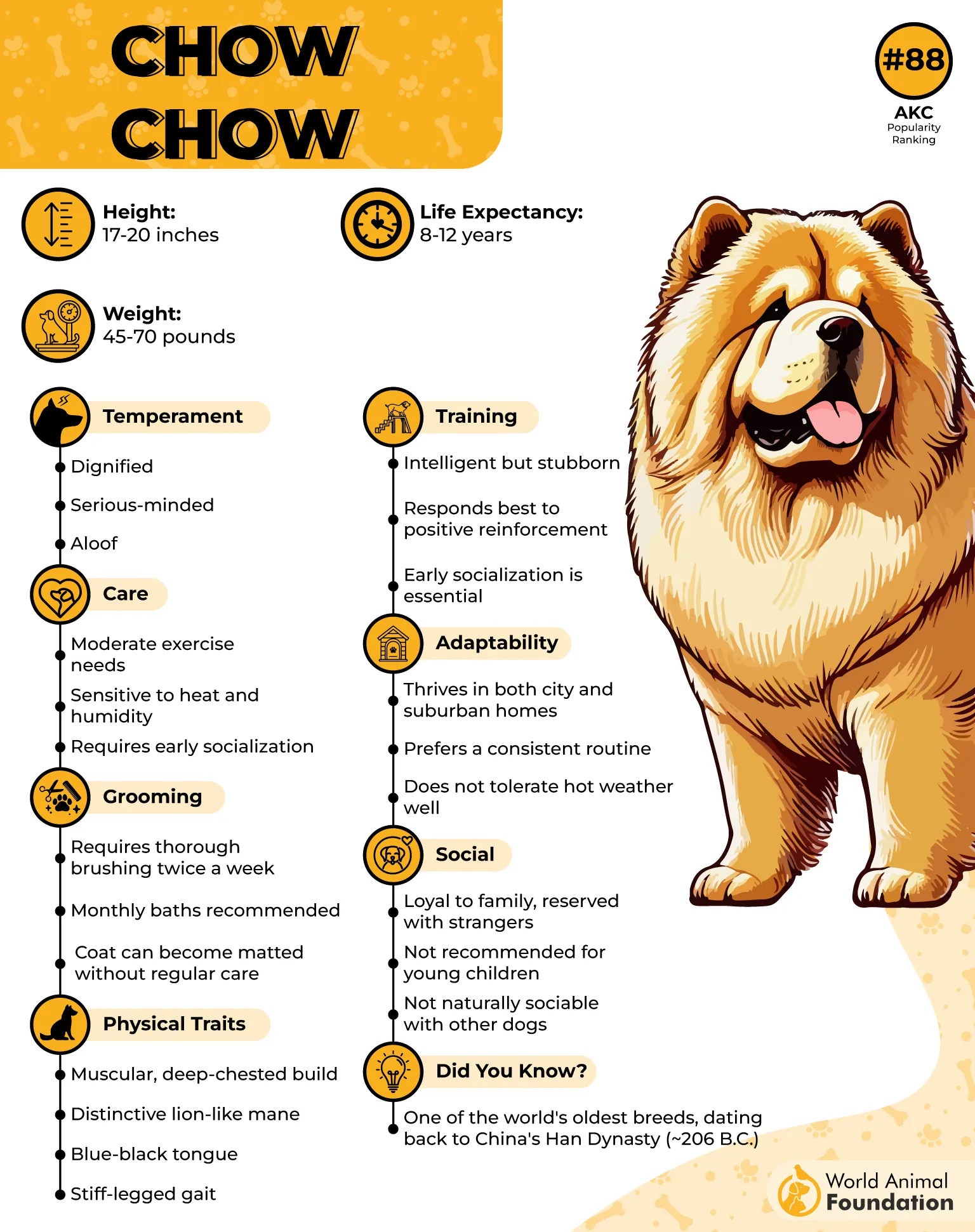
Training a Chow Chow requires patience and consistency, as their independent streak is strong. Early socialization is key to ensuring they grow into confident guardians rather than overly suspicious companions. With the right guidance, they blend loyalty with composure.
Rather than relying on noise, Chow Chows use their imposing appearance and calm presence to deter intruders. Their quiet, steady temperament makes them ideal for families who value both elegance and protection in a guardian dog.
Owners Insight
Can be aloof; not always an affectionate family dog.
Low tolerance for hot climates; needs shade.
Naturally protective; often wary of strangers.
8. Kuvasz
The Kuvasz is a majestic Hungarian livestock guardian, celebrated for centuries as both protector and companion. Unlike many large breeds, the Kuvasz is not overly vocal, choosing calm vigilance over constant barking. Their independent and confident temperament makes them natural guardians.
Though intelligent, the Kuvasz requires firm and consistent training. Socialization from an early age ensures they distinguish between real threats and harmless situations. Their loyalty and courage shine brightest when they feel their family needs protection.
Rather than wasting energy on unnecessary barking, they save their voice for meaningful alerts. With their combination of quiet strength and natural guarding instincts, the Kuvasz is an exceptional choice for silent security.
Owners Insight
Historically, livestock guardians require secure fencing.
Strong protective instincts can cause suspicion.
Needs plenty of space; unsuitable for small children.
9. Basenji
The Basenji is famously known as the “barkless dog,” a unique trait rooted in its African hunting heritage. Instead of barking, this agile breed produces yodel-like sounds called “baroos.” For families seeking a truly quiet guard dog, the Basenji is unmatched.
Training a Basenji requires creativity and consistency, as their independent nature can make them stubborn. However, with patient guidance and early socialization, they become loyal and attentive companions. Their confidence ensures they stay alert without being noisy.
What sets the Basenji apart is its watchful silence combined with sharp instincts. They protect through presence and awareness, making them one of the most unique guard dog breeds in the world.
Owners Insight
Rarely bark but vocal in unique yodels.
Climbs and escapes; secure yards required.
Minimal odor; among the most low-maintenance.
FAQ’s
1. How do quiet guard dogs deter intruders if they don’t bark much?
Quiet guard dogs rely on their strong protective instincts, imposing presence, and confident body language. Many intruders are deterred by a large dog’s stance rather than noise. They act only when they sense a real potential threat.
2. Can quiet guard dogs still live comfortably in apartments or neighborhoods?
Yes, many quiet dogs adapt well to apartments and neighborhoods since they rarely bark excessively. With regular exercise and proper training, they stay calm and content. Their low noise levels make them considerate neighbors.
3. What training helps guard dogs stay protective without becoming noisy?
Early training and socialization are essential for shaping balanced behavior. Positive reinforcement teaches dogs to respond calmly while staying naturally protective. Consistent guidance ensures they remain excellent guard dogs without becoming excessive barkers.
Conclusion
Quiet dog breeds show that excellent guard dogs don’t need to bark loudly to protect. Beyond our list, several dog breeds like the Bernese Mountain Dog, German Shepherd, and Great Dane also make terrific guard dogs with proper training.
Other breeds, such as Cavalier King Charles Spaniels, French Bulldogs, and Shiba Inu, may be generally quiet but form strong bonds and become loyal companions with early training and positive reinforcement.
Whether for kids, other animals, or a calm family pet, the right dog—guided by experts and the American Kennel Club—can be a great choice for protection and peace.


